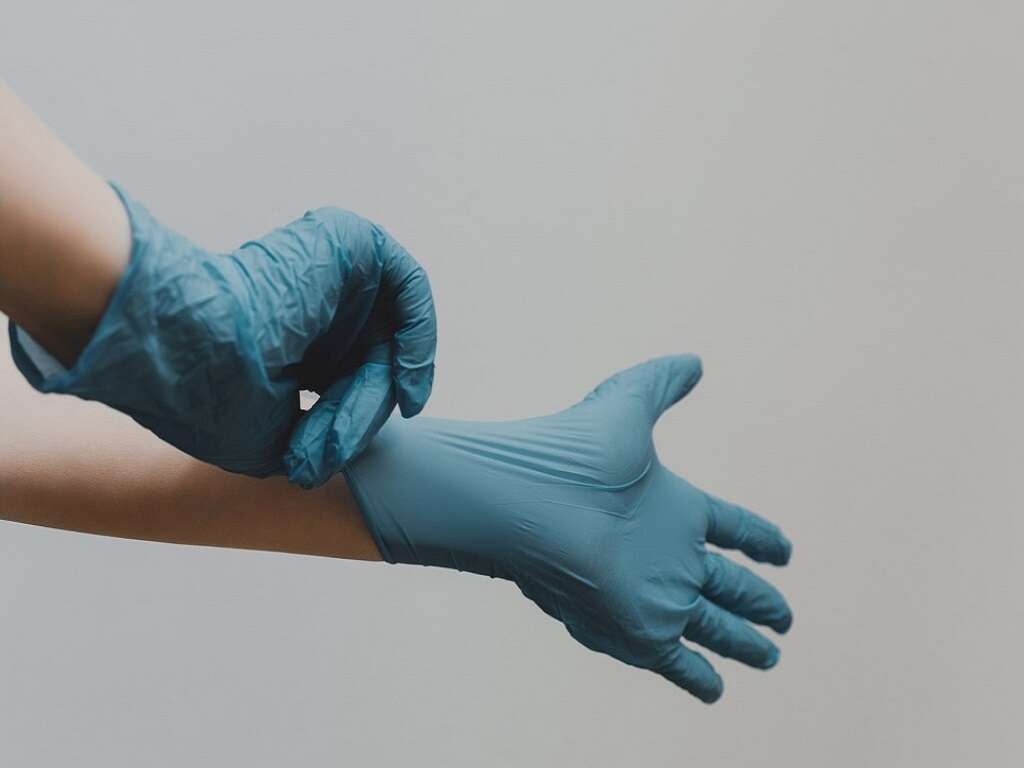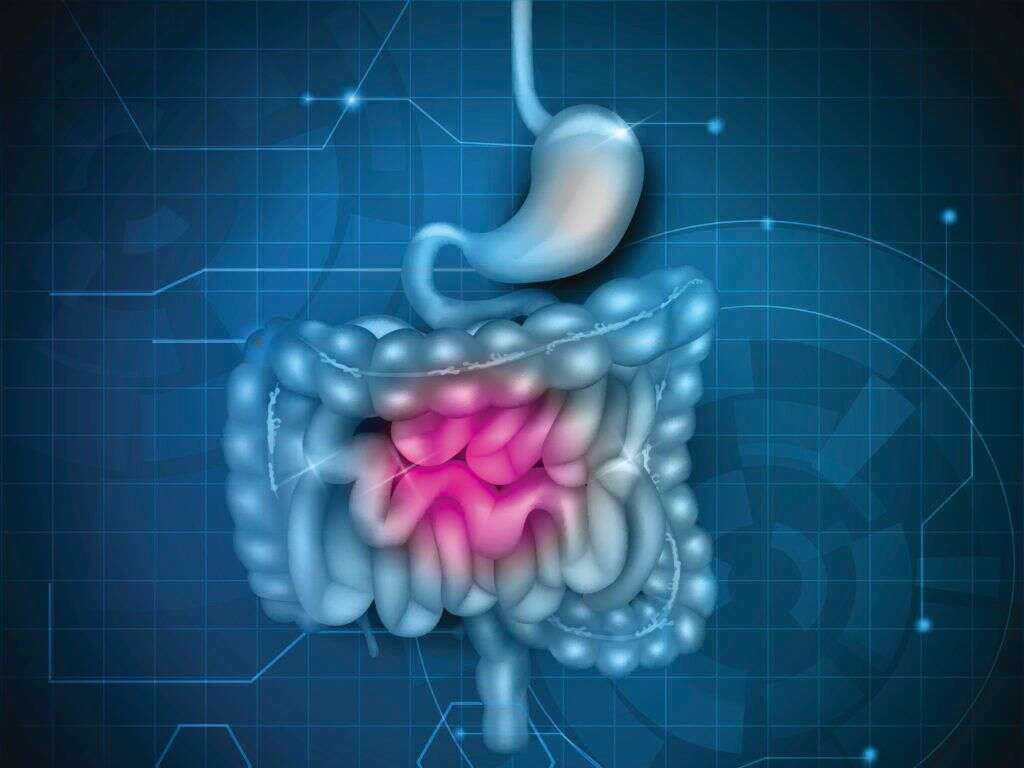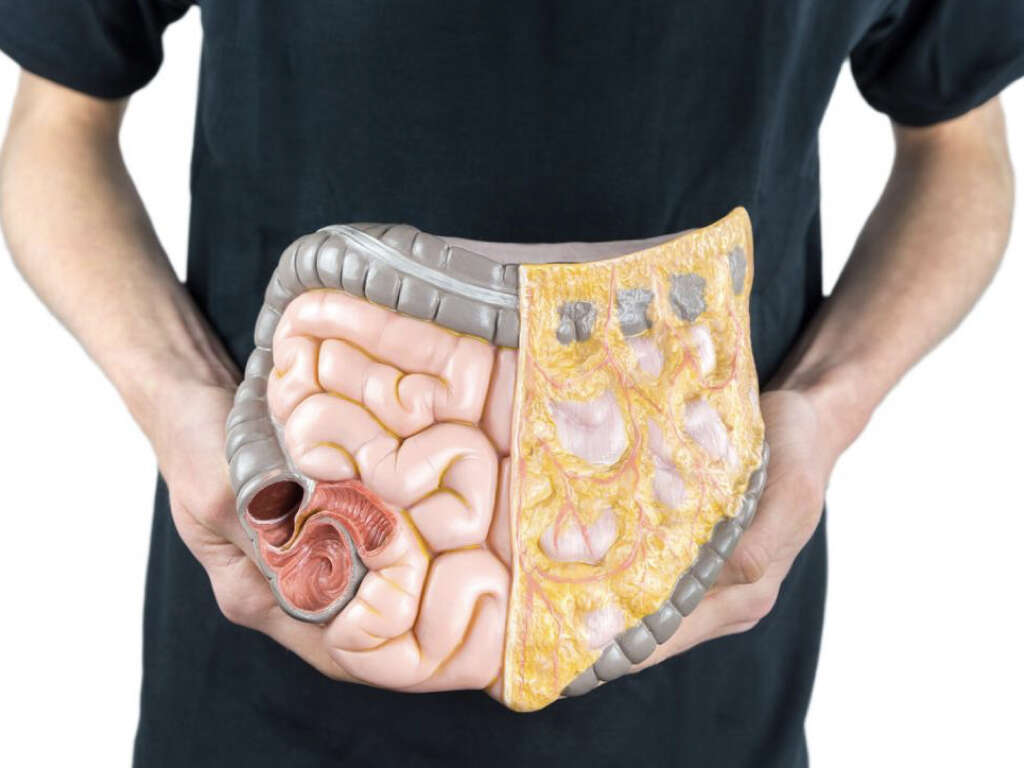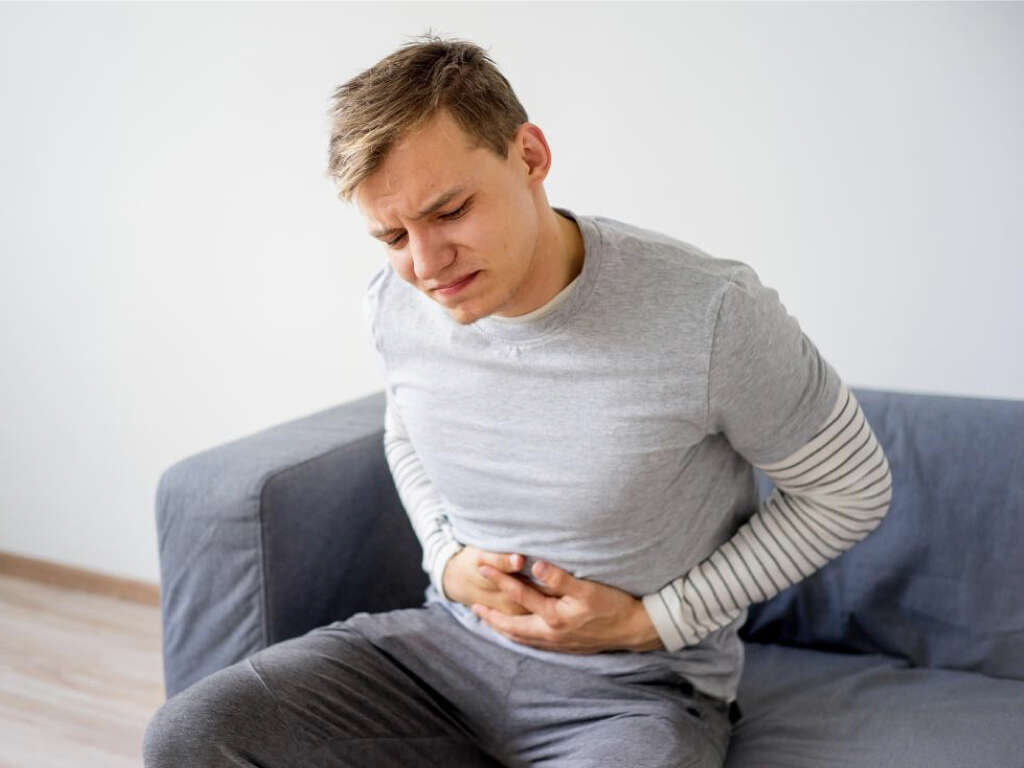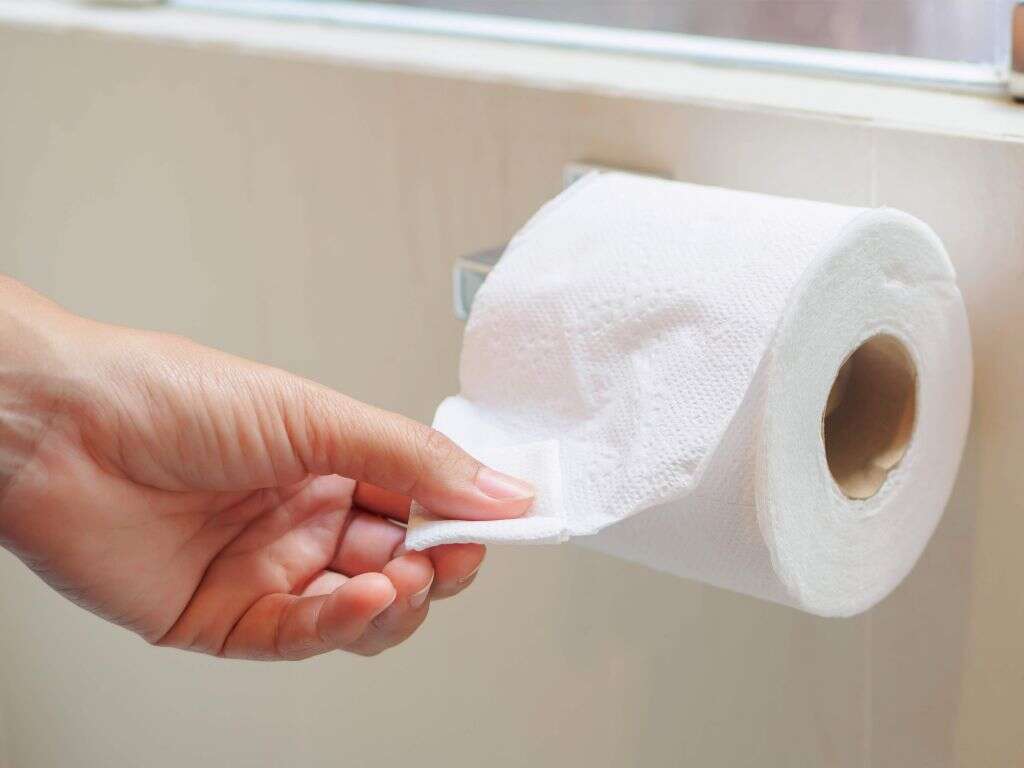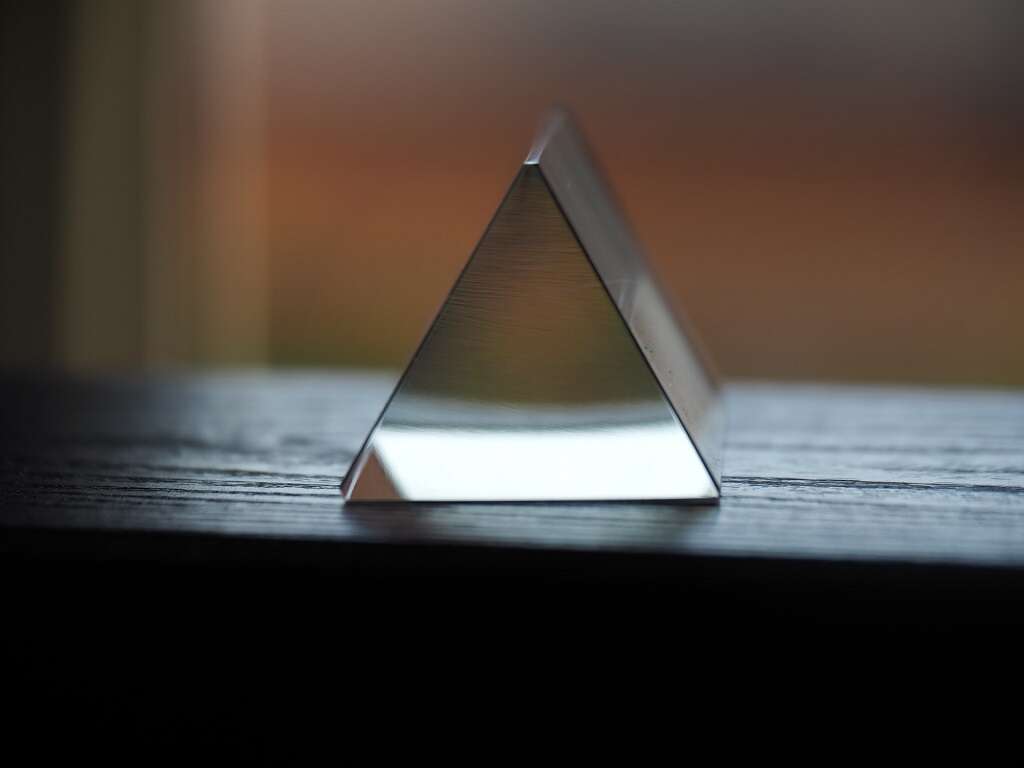Large Intestine Function Overview
 Article Sources
Article Sources
- 1. Quigley, Eamonn M M. 'Gut Bacteria in Health and Disease.' Gastroenterology & Hepatology, Millennium Medical Publishing, Sept. 2013, www.ncbi.nlm.nih.gov/pmc/articles/PMC3983973
- 2. Rinninella, Emanuele, et al. 'What Is the Healthy Gut Microbiota Composition? A Changing Ecosystem across Age, Environment, Diet, and Diseases.' Microorganisms, MDPI, 10 Jan. 2019, www.ncbi.nlm.nih.gov/pmc/articles/PMC6351938
- 3. Sender, Ron, et al. 'Revised Estimates for the Number of Human and Bacteria Cells in the Body.' PLoS Biology, Public Library of Science, 19 Aug. 2016, www.ncbi.nlm.nih.gov/pmc/articles/PMC4991899
- 4. Hsiao, William W L, et al. 'The Microbes of the Intestine: an Introduction to Their Metabolic and Signaling Capabilities.' Endocrinology and Metabolism Clinics of North America, U.S. National Library of Medicine, Dec. 2008, www.ncbi.nlm.nih.gov/pmc/articles/PMC4411945
- 5. Sears, Cynthia L. 'A Dynamic Partnership: Celebrating Our Gut Flora.' Anaerobe, Academic Press, 27 June 2005, www.sciencedirect.com/science/article/abs/pii/S1075996405000685
Defecation Reflex
In humans, defecation involves both voluntary and involuntary processes that generate enough force to evacuate solid waste material from the rectum. The rectal ampulla temporarily stores the waste. Thereafter, the accumulation of a sufficient amount of fecal waste triggers the defecation reflex.
The relaxation of the internal anal sphincter sends a signal to the brain and triggers the urge to defecate. Prolonged delay of defecation may cause constipation. During defecation, voluntary relaxation and contraction of the anal sphincter ejects waste material from the body.
Advertisement



